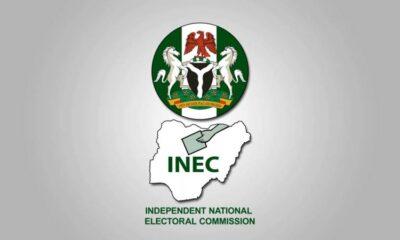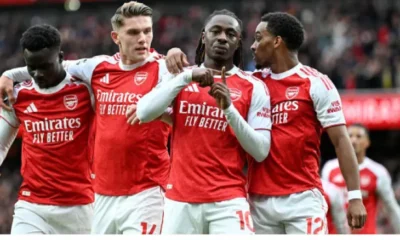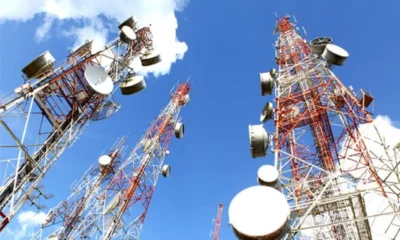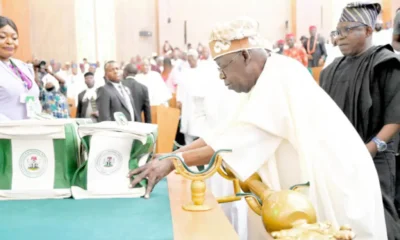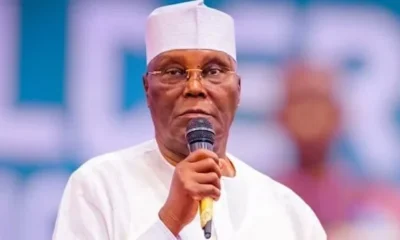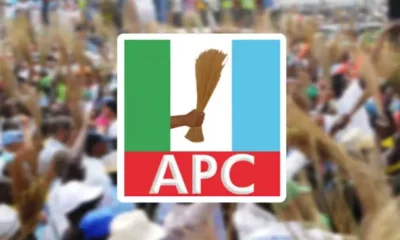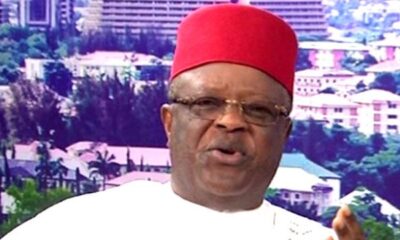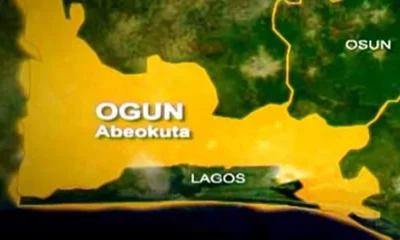Opinion
For Sommie and the Unknown Nigerian

One way or the other, the victims were eventually taken to the hospital but it was a case of too little, too late. The more I read the story, the more depressing I find it. Where do we start? A contingent of robbers operating in Abuja without let or hindrance? Police arriving as late as possible and failing to convey the victims to the hospital as a matter of urgency? The president directing police to investigate? Police promising to leave no stone unturned? Anyone familiar with the story of Nigeria will not find any of these things strange. They sound so familiar. Emergency responses in our dearly beloved country leave plenty to be desired. Dear God, when are we going to turn the corner?
Initial reports suggested that the hospital staff paid more attention to documentation than the urgency of saving the lives of Maduagwu and Barnabas. This has been denied by the hospital authorities. But even if the hospital is saying the truth, it does not mask the fact that this happens all the time at both private and public facilities in many parts of the country. And we are only discussing this issue because Maduagwu had a name. We would not treat her as a regular victim of neglect and negligence. But for millions of unknown Nigerians — like Barnabas — this is their lot. Every day, they are denied basic care and basic protection by their country, condemned to ignominy and anonymity.
My cousin is studying medicine at a federal university. He always tells me stories of how accident victims will be bleeding to death and the front desk will be focusing on documentation. At least, place the victim on oxygen support first and then stop the bleeding! Do the administrative stuff later!! People lose their lives while the Good Samaritans that rushed them in are being interrogated — usually at snail speed. My nephew told me of an instance when the hospital staff started checking for spelling errors after relatives had filled the registration forms. By the time they were done with the formalities, the distressed patient had died. Some people have completely lost their humanity.
Apparently, the demand by hospitals for documentation and payment of huge deposits is part of an overarching strategy to avoid treating patients whom they think might not be able to settle the bills — worse still as they may die during treatment. A friend who was involved in a fatal accident in Lekki many years ago (six passengers died instantly) said he too would have died if not that his friends were driving behind him when the bus somersaulted and landed on his car. His friends rushed him to a private hospital which demanded millions of naira as deposit before they would touch him. They whipped out their cards and paid immediately. Those who could not pay were sent to their graves.
I would not be surprised if police deny the report that their men said they did not have fuel. But it is such a familiar story in our land that one denial does not erase previous experiences. I am a bit more careful talking about the police angle because I know that things have gradually improved over time and I also know that the force disciplines its erring officers a lot, but the truth, if it must be told, is that even their best is not up to scratch. If you report a case to the police, many times you have to pay for “logistics”. You have to fund investigation. Even if you want to write a statement at a police station, you have to “buy” paper and pen. You actually don’t buy them — you are forced to pay.
Police, fire service and hospitals are critical to the well-being of Nigerians. A major duty of the state is to prevent anarchy, preserve human dignity and protect our lives. The state has the duty to uphold the sanctity of life. Police are the ones constitutionally mandated to protect our lives and property. We should be able to confidently call the police if our lives are in danger, and they should be able to respond with alacrity. The fire service is to rescue us from danger and mobilise everything to save our lives in emergency situations. Hospitals are supposed to be centres where care is given to patients, where the utmost priority is to preserve our lives. Care is about compassion and comfort.
It is not coincidental that in most advanced societies, it is only the emergency services — medical, police and fire — that use sirens and are allowed to bypass traffic rules to save lives and property. You hardly find presidents, ministers, governors, mayors and local government officials using siren, unlike what our leaders do in Nigeria to chase the citizens off the road. When I was a kid, we used to disdain the use of siren by government officials. We would sing a song that matches the sound of the siren: “Ya fun/were ni.” It means: “Leave the road for them/They are mad.” For all intents and purposes, siren is primarily for the emergency services: ambulances, fire trucks and police vans.
In my book, ‘Fellow Nigerians, It’s All Politics’, published in 2022, the title of the first essay is: ‘The Value of a Nigerian’s Life.’ In it, I argued that if our leaders placed value on the life of every Nigerian, it would always reflect in their policies and actions. First of all, the emergency services will work. The ambulances and A&E wards will be top-notch. If someone is run over by a vehicle, they will not be allowed to bleed to death. Emergency services will be contacted and they will hurry to the scene, apply life-saving first aid and transport the victim to the A&E for further treatment. In Nigeria, the police van won’t have fuel or the hospital will be asking the victim for his mother’s maiden name.
Is there any state, territory or council in Nigeria that has effective emergency services? For instance, is there an emergency number that Citizen Lagbaja can call if he is having a heart attack and an ambulance will show up within 10 minutes? This, in my opinion, is the kind of service that presidents, governors and council chairpersons should be boasting about — not the number of mansions and 4WDs they have acquired in office. Even if people manage to get Citizen Lagbaja to the hospital, they could be told there is no bed space. It is so commonplace. Any society that cannot show the value it attaches to human life through excellent emergency services should remain classified as “primitive”.
Lamentations aside, what are we really doing to address these challenges? How can the police be more alive to their responsibilities by responding to emergency calls as well as investigating crimes? I have had quite a number of experiences with them and I know, with the benefit of confidential briefings, that indeed the force is not well funded in matters of logistics and investigation. An inspector-general lamented to me years ago that the operations budget for the police across the federation was barely enough to take care of one state command. “We end up giving our officers vehicles without fuel,” he said. Guess how they make the money to fuel the vans. You guessed right.
In 2018, a 13-year-old girl was raped, repeatedly, by his father’s neighbour in Ogun state. As soon as it was brought to my attention, we got the paedophile and rapist arrested and he was transferred to Abeokuta. We started hearing rumours that the investigative officer was “behaving funny”. Very unlike me, I went on Twitter and tried to make a fuss. It turned out that we were being unfair to the police officer. He had actually been spending his own money to feed the suspect in detention and transport him to the court, but he couldn’t get a date for bail hearing. He openly complained about spending his own funds. That was what the girl’s family misconstrued as an attempt to kill the case.
I could cite more instances. A friend’s brother disappeared on a trip from Asaba to Abuja. We gave up trying to locate his whereabouts after we had spent a fortune on police investigations. I complained to a senior officer and he bluntly advised me: “Simon, you need to give them the funds they are asking for, otherwise they cannot proceed. To be honest, the funding is just not there.” How do we resolve a matter of this nature? We urgently need to improve security. We need to ensure police and other security agencies promptly respond to protect those in distress. They can’t be everywhere, but they should be able to respond to calls before it is too late. What is the use of showing up only after the deed has been done? I accept that emergency agencies are stretched, but they can do better.
How do we get all the hospitals to prioritise saving human lives above demanding down payment and BVN? How do we get them to urgently attend to accident and gun-shot victims? I know there is a law, but we have millions of Nigerian laws that are not — or cannot be — enforced. I don’t know how much thinking went into making the law. Solving the problem will require a thorough understanding of why many hospitals hesitate to take emergency patients. What are their fears? Are they legal or financial? What’s the solution? Sadly, if we say government should guarantee payment in case the patient dies, we may end up with ghost patients and “dead” ghosts. It still feels like a good option.
My condolences to the bereaved families and friends of Maduagwu and Barnabas. They represent the different spectrums of Nigerians who suffer similar fates stemming from our security challenges and poor emergency services. I always wish, from the depth of my heart, that Nigeria would become a country where we learn lessons, where tragedies of this nature would propel us to improve the way we do things. We cry, we curse, politicians order investigations, police promise to do and undo — until the next tragedy happens. We move on easily. Rinse, repeat, rinse, repeat. We can never turn the corner until we start attaching value to human lives. No Nigerian deserves to die in this manner.
AND FOUR OTHER THINGS…
STEPPING UP
When I read reports that Alhaji Atiku Abubakar said he was going to step down for a “young candidate” in the 2027 presidential race, I thought something was wrong. I can’t claim to know Atiku too well, but I can bet my laptop that he will run in the presidential primary of the African Democratic Congress (ADC). He will not put together a coalition and then step down. We all know he wants to be president of Nigeria. Any calculations and permutations about the ADC must factor his ambition into it. As it turned out, he only said he would back whoever wins the primary. Those who think they will get the ADC ticket on a platter of silver need to rethink. Atiku is not playing. Fact.
ART OF THE DEAL
Have you heard the news? The United States has restored five-year visas to Ghana after the West African country agreed to accept deported immigrants. This was the deal President Donald Trump was looking for all along when he decided to restrict visas to single entry for a number of countries, including Nigeria. The usual suspects had set the social media on fire accusing President Bola Tinubu of reneging on the reciprocal five-year multiple entry visa that the US had with Nigeria. This accusation was not based on facts, some of us countered. Tinubu now has to decide if he wants to start accepting the deportees, like Ghana, in order to have the visa restriction removed. Choices.
AGENDA SETTING
There is a renewed claim of an ongoing “Christian genocide” in Nigeria. Reeling out data, an American comedian, Bill Maher, said: “They are literally attempting to wipe out the Christian population of an entire country.” Maher didn’t disclose the source of his statistics. US Senator Ted Cruz has now proposed a bill on this “Christian genocide”. I don’t know the game, but those amplifying the narrative know what they are doing. I also see this as good business for asylum seekers — just show up at Western embassies and claim your life is in danger because you are a Christian. It works for those who claim to be gay — or members of Yoruba Nation and IPOB. Agenda.
NO COMMENT
Many Nigerians wined and dined on Monday when FIFA announced that it had punished South Africa for fielding an ineligible player in a 2026 World Cup qualifying match. The disciplinary committee ruled that Teboho Mokoena was ineligible against Lesotho. South Africa’s three points from the game were awarded to Lesotho, reducing Bafana Bafana’s haul of 17 points to 14. They have now dropped to second while Benin Republic is tops but on the same number of points. You know what? The Giants of Africa have only 11 points. We need to win our remaining two matches to be in contention. Could it be that we didn’t realise Benin is the real beneficiary of South Africa’s misfortune? Hmmm.
-

 News24 hours ago
News24 hours agoRigging: INEC RECs risk two-year jail term
-

 Sports24 hours ago
Sports24 hours agoEPL: Arsenal Restore Five-Point Lead After Win In North London Derby
-

 Politics16 hours ago
Politics16 hours ago2027: Real-time results transmission achievable, say telcos
-

 News24 hours ago
News24 hours ago2025 Budget: Capital Without Cash
-

 Politics24 hours ago
Politics24 hours agoFCT Poll: Low turnout shows democracy is being suffocated – Atiku
-

 Politics23 hours ago
Politics23 hours agoBy-Election Wins, Referendum On Tinubu Presidency – Lagos APC
-

 News23 hours ago
News23 hours agoUmahi denies rift with Julius Berger, insists on equal standards
-

 Metro24 hours ago
Metro24 hours agoAwujale: Ruling family demands gov resume selection process



